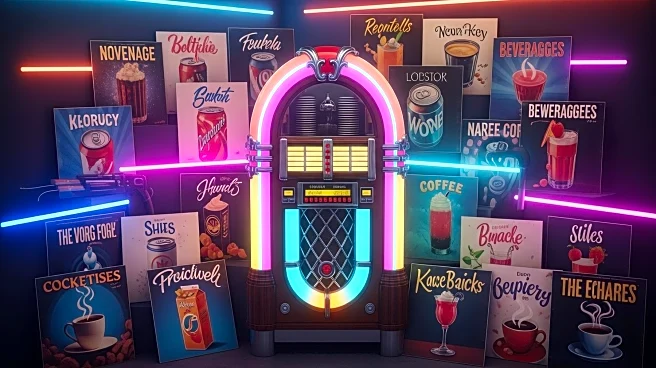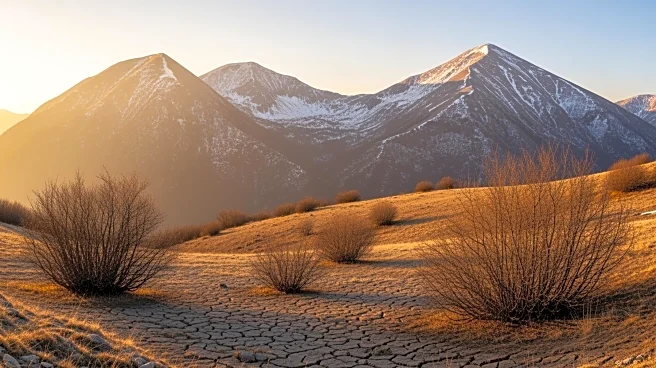What's Happening?
In 2025, the music industry is experiencing a unique trend with beverage-themed songs climbing the charts. Saja Boys' track 'Soda Pop,' featured in Netflix's KPop Demon Hunters, has reached No. 5 on the Billboard Hot 100, maintaining a top 10 position for four weeks. This follows the success of Sabrina Carpenter's 'Espresso,' which peaked at No. 3 in 2024. Other artists like Addison Rae have also joined the trend, with her song 'Diet Pepsi' reaching the top 10 on Billboard's Pop Airplay chart. Historically, beverage references in music have been popular, with tracks like the Andrews Sisters' 'Rum and Coca-Cola' and Mel Tillis' 'Coca Cola Cowboy' achieving significant success. This trend highlights a continued fascination with integrating everyday themes into pop music.
Why It's Important?
The rise of beverage-themed songs in the music charts reflects a broader cultural trend where everyday consumer products influence artistic expression. This phenomenon can impact marketing strategies for beverage companies, as they may leverage these songs for advertising and brand recognition. For the music industry, it represents a shift in thematic content that resonates with audiences, potentially driving sales and streaming numbers. Artists and record labels might capitalize on this trend by producing more songs with similar themes, influencing the direction of pop music. Additionally, this trend underscores the cyclical nature of music themes, where past successful motifs are reimagined for contemporary audiences.
What's Next?
As beverage-themed songs continue to gain popularity, it is likely that more artists will explore similar themes in their music. Record labels may encourage collaborations between musicians and beverage brands, creating cross-promotional opportunities. The trend could also inspire live performances and music videos that incorporate beverage branding, further blurring the lines between music and marketing. Additionally, chart success may prompt other industries to explore similar partnerships, using music as a platform to reach broader audiences. The ongoing success of these songs will be closely monitored by industry stakeholders to gauge their long-term impact on music trends.
Beyond the Headlines
The integration of beverage themes in music raises interesting questions about consumer culture and its influence on art. It highlights how everyday products can become cultural symbols, shaping artistic narratives and public perception. This trend also reflects the power of nostalgia, as many of these songs draw on historical references to beverages in music. The ethical implications of such commercial influences on art may be debated, particularly regarding the authenticity of artistic expression when intertwined with brand promotion. Long-term, this could lead to a reevaluation of how commercial interests shape cultural production.










